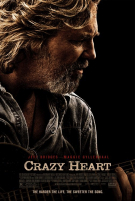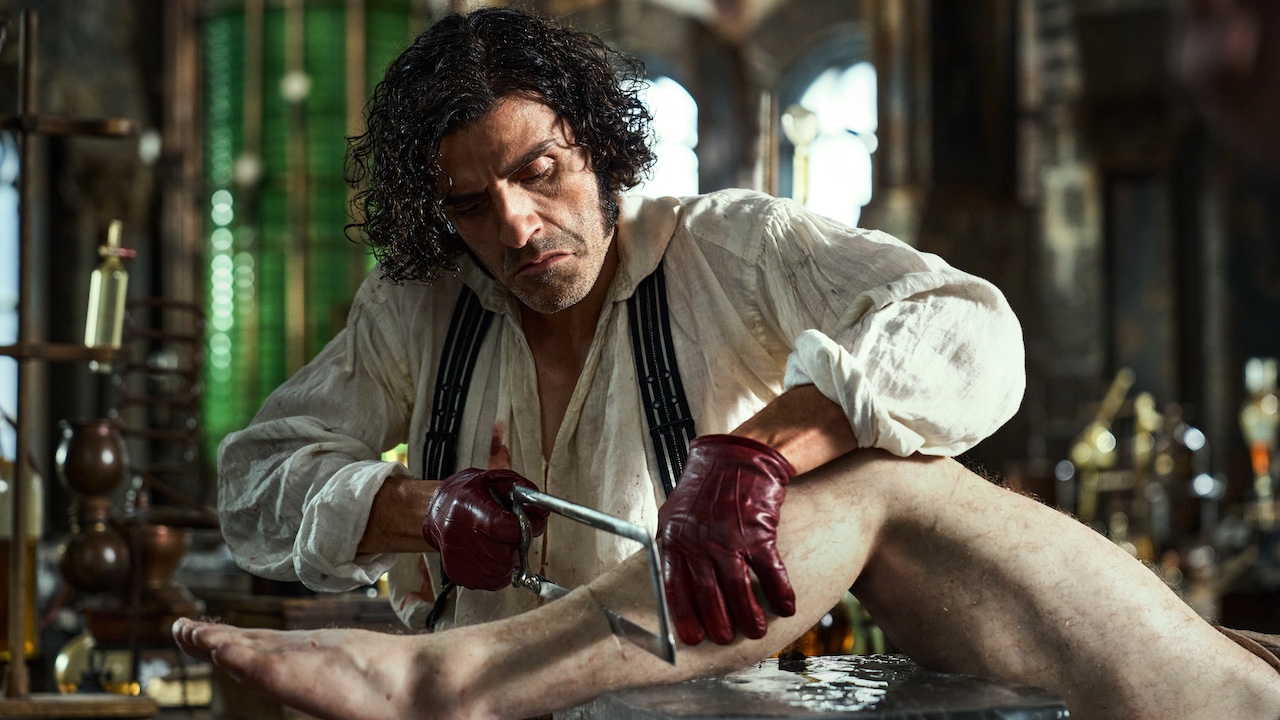As Hollywood would have it, there's really only a few ways for a man knocked down by life to get a second chance. First you've got to find a good woman, who recognizes your flaws and encourages you to move beyond them. If you're drunk, you've gotta get sober; if you're on drugs, you've gotta get clean; and if you've got some estranged children out there (and you almost always do), for God's sake, give them a call.
Writer-director Scott Cooper doesn't miss a single one of those beats, and what's surprising is how often Crazy Heart works despite its rote structure, due hugely to the titanic Jeff Bridges performance at the center of the film, and also the original country music that brings the whole thing together. Playing Bad Blake, a minor country legend now well past his prime, Bridges initially masks his innate charm within a wasted drunk, and Bad spends the movie becoming someone not all that unlike Bridges himself. Though the beats are familiar and the happy ending never in question-- unlike the superior and similarly themed The Wrestler-- Bridges forces you to root for Bad all the same.
Performing at a series of dingy bars and bowling alleys across the Southwest, and drunk for nearly every waking moment, Bad is friendly and giving but a huge mess, vomiting in the middle of performances and breaking his ankle when he drives his Suburban off an empty road. In New Mexico he strikes up a romance with local reporter Jean (Maggie Gyllenhaal), a single mom who is wary but not unwilling to take a chance on a man 30-odd years her senior. Bad, who has perfected the art of living for the moment, is smitten and ignoring any sign that she wants him to sober up, both for her own sake and that of her adorable son (Jack Nation), who bonds with Bad almost immediately.
At some point in his past, Bad mentored a young musician named Tommy Sweet (Colin Farrell, curiously uncredited), who has gone on to become something of a superstar. Tommy keeps trying to help Bad, offering a opening gig and some songwriting duties, but Bad, sensing a handout, won't bite. The scenes between the two of them, rich with unspoken history, are among the film's strongest, and also provide a much-needed context for the film's country music setting. The original songs by Ryan Bingham (who also has a small role in the film) and T. Bone Burnett are beautiful and perfect for the character, but the world of Crazy Heart still never feels all that real, or at least all that different from any other hardscrabble setting we've seen in similar indies.
There are many moments in the film that strain credulity, from the mere fact that Jean would strike up this affair with Bad (Gyllenhaal, while excellent, is too young for the part) to the extent to which Bad cleans up his act in a short period of time. There are complications, sure, and at no point do Bridges or Cooper ask you to believe in the kind of unforced redemption that a lesser movie would have gone for. But a lifetime of bad decisions isn't reversed as quickly as it seems here, and it seems that it ought to take more than just a woman as beautiful as Maggie Gyllenhaal to convince a man as stubborn as Bad to change his ways.
But as much as the movie may seem to lose track of side characters or where it wants to go, it is always true to Bad, and Bridges rewards that focus with a performance so warm and intuitive that Crazy Heart itself becomes a kind of winner. Whether sharing the scene with Robert Duvall (as a bar owner and longtime friend of Bad's) or Farrell, Bridges inhabits Bad fully, and cleverly uses our decades of fondness for him as an actor to give us a way to connect to his troublesome character as well. He holds up the movie even when it isn't quite up to his level, and makes for an experience that's rewarding even its lack of surprises.
Your Daily Blend of Entertainment News
Staff Writer at CinemaBlend


